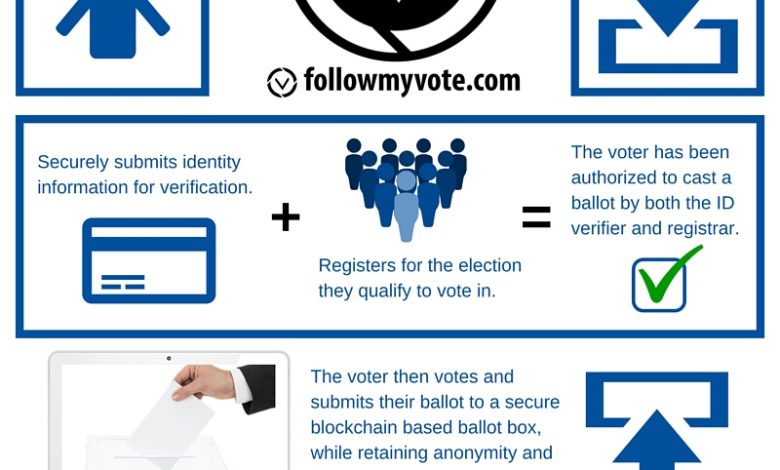Blockchain Voting Systems: Ensuring Transparency and Security

- Understanding the Basics of Blockchain Technology
- The Evolution of Voting Systems
- Challenges in Traditional Voting Methods
- The Benefits of Implementing Blockchain in Voting
- Ensuring Security in Digital Voting Systems
- The Future of Democracy with Blockchain Technology
Understanding the Basics of Blockchain Technology
Blockchain technology is a revolutionary system that allows for secure and transparent transactions without the need for intermediaries. At its core, a blockchain is a decentralized digital ledger that records transactions across a network of computers. Each transaction is stored in a “block” that is linked to the previous block, creating a chain of blocks – hence the name blockchain.
One of the key features of blockchain technology is its immutability. Once a block is added to the chain, it cannot be altered or deleted without the consensus of the network. This makes blockchain an ideal solution for voting systems, as it ensures that votes are recorded accurately and cannot be tampered with.
Another important aspect of blockchain technology is its transparency. Since all transactions are recorded on a public ledger, anyone can view the data and verify the integrity of the system. This transparency helps to build trust in the voting process and ensures that the results are fair and accurate.
In addition to security and transparency, blockchain technology also offers efficiency and cost savings. By eliminating the need for intermediaries and streamlining the voting process, blockchain voting systems can reduce the risk of fraud and human error while saving time and resources.
Overall, understanding the basics of blockchain technology is essential for realizing the full potential of blockchain voting systems. By harnessing the power of blockchain, we can create a more secure, transparent, and efficient voting process that upholds the integrity of democracy.
The Evolution of Voting Systems
The evolution of voting systems has been a gradual process over the years, with advancements in technology playing a significant role in shaping the way we cast our votes. Traditional paper-based voting systems have long been the norm, but they are not without their flaws. Issues such as voter fraud, tampering, and inefficiency have plagued these systems for decades.
As technology has advanced, so too have voting systems. Electronic voting machines were introduced as a way to streamline the voting process and reduce the potential for human error. However, these machines have also been subject to hacking and manipulation, raising concerns about their security and reliability.
Blockchain technology has emerged as a potential solution to many of the problems associated with traditional voting systems. By using a decentralized and transparent ledger, blockchain voting systems can ensure the integrity of the voting process while maintaining the anonymity of voters. This technology has the potential to revolutionize the way we vote, making the process more secure, efficient, and accessible to all.
One of the key benefits of blockchain voting systems is their transparency. Because all transactions are recorded on a public ledger, voters can verify that their votes have been counted accurately and securely. This level of transparency helps to build trust in the voting process and ensures that election results are legitimate.
In addition to transparency, blockchain voting systems also offer enhanced security. The decentralized nature of the blockchain makes it nearly impossible for hackers to manipulate or tamper with the voting data. This added layer of security helps to protect the integrity of the voting process and ensures that election results are free from interference.
Overall, the evolution of voting systems has been driven by a desire to make the voting process more secure, transparent, and accessible. Blockchain technology offers a promising solution to many of the challenges facing traditional voting systems, providing a way to ensure that every vote is counted and every voice is heard. By embracing blockchain voting systems, we can help to safeguard the integrity of our democratic process and ensure that elections are fair and free from manipulation.
Challenges in Traditional Voting Methods
Traditional voting methods face numerous challenges that can compromise the integrity of the electoral process. One of the main issues is the potential for fraud and manipulation, as paper ballots can be tampered with or lost. Additionally, traditional voting methods are often time-consuming and costly to administer, leading to inefficiencies in the election process.
Moreover, traditional voting methods do not provide a transparent and secure way to verify the accuracy of the results. This lack of transparency can lead to doubts about the legitimacy of the outcome, undermining public trust in the electoral system.
Furthermore, traditional voting methods are not easily accessible to all voters, particularly those who are unable to physically attend polling stations. This can result in disenfranchisement and a lack of representation for certain groups within the population.
In conclusion, the challenges in traditional voting methods highlight the need for a more secure, transparent, and efficient way to conduct elections. Blockchain voting systems offer a promising solution to address these issues and ensure the integrity of the electoral process.
The Benefits of Implementing Blockchain in Voting
Implementing blockchain technology in voting systems offers a myriad of benefits that can revolutionize the way elections are conducted. By utilizing blockchain, the entire voting process becomes more transparent, secure, and efficient. Here are some of the key advantages of incorporating blockchain in voting:
- **Transparency**: One of the main advantages of blockchain technology is its ability to provide a transparent and tamper-proof record of transactions. In the context of voting, this means that every vote cast is recorded on the blockchain, making it impossible to alter or manipulate the results without detection.
- **Security**: Blockchain technology uses advanced cryptographic techniques to secure the data stored on the network. This ensures that votes are encrypted and cannot be tampered with by malicious actors. Additionally, the decentralized nature of blockchain makes it resistant to hacking and fraud.
- **Accuracy**: With blockchain voting systems, there is a reduced risk of human error in the counting and tallying of votes. The automated nature of blockchain technology helps to eliminate the possibility of mistakes or discrepancies in the voting process.
- **Accessibility**: Blockchain voting systems can increase accessibility for voters, especially those who may have difficulty accessing traditional polling stations. Through online voting platforms, voters can cast their ballots securely from anywhere in the world.
- **Efficiency**: By streamlining the voting process and automating tasks such as voter registration and verification, blockchain technology can significantly improve the efficiency of elections. This can lead to faster results and a more seamless voting experience for all parties involved.
In conclusion, the implementation of blockchain in voting systems has the potential to address many of the challenges and concerns associated with traditional voting methods. By leveraging the unique features of blockchain technology, we can create a more transparent, secure, and efficient electoral process that upholds the integrity of democratic elections.
Ensuring Security in Digital Voting Systems
Ensuring security in digital voting systems is crucial to maintaining the integrity and trustworthiness of the electoral process. With the rise of blockchain technology, there has been a growing interest in using blockchain-based voting systems to enhance transparency and security.
One of the key features of blockchain technology is its ability to provide a tamper-proof and decentralized ledger of transactions. This makes it an ideal solution for ensuring the security of digital voting systems. By recording each vote as a transaction on the blockchain, it becomes virtually impossible for any unauthorized party to alter or manipulate the results.
In addition to the immutability of the blockchain, cryptographic techniques are used to secure the voting process further. Each voter is assigned a unique digital identity, which is used to encrypt their vote and ensure that only authorized individuals can participate in the voting process. This helps prevent fraud and ensures that each vote is counted accurately.
Furthermore, blockchain-based voting systems can also provide transparency by allowing voters to verify that their vote has been recorded correctly. Through the use of public and private keys, voters can securely access the blockchain to confirm that their vote has been included in the final tally. This level of transparency helps build trust in the electoral process and ensures that the results are legitimate.
Overall, blockchain technology offers a promising solution for ensuring the security and transparency of digital voting systems. By leveraging the immutability of the blockchain, cryptographic techniques, and transparency features, blockchain-based voting systems can help safeguard the integrity of elections and uphold democratic principles.
The Future of Democracy with Blockchain Technology
Blockchain technology has the potential to revolutionize the future of democracy by providing a secure and transparent platform for voting systems. By utilizing blockchain technology, we can ensure that each vote is recorded accurately and cannot be tampered with. This level of transparency can help build trust in the electoral process and increase voter turnout.
One of the key benefits of using blockchain for voting systems is the ability to verify the integrity of the results. Each vote is recorded on a decentralized ledger, making it nearly impossible for any single entity to manipulate the outcome. This can help prevent fraud and ensure that the will of the people is accurately reflected in the final tally.
Additionally, blockchain technology can also help increase accessibility to voting. With traditional voting methods, many people face barriers such as long lines, limited polling locations, and difficulty in obtaining mail-in ballots. By implementing blockchain-based voting systems, we can potentially allow for secure online voting from the comfort of one’s own home.
Furthermore, blockchain voting systems can also help reduce the costs associated with traditional voting methods. By streamlining the process and eliminating the need for manual vote counting, governments can save time and resources. This can lead to more efficient elections and potentially higher levels of voter satisfaction.
Overall, the future of democracy with blockchain technology looks promising. By leveraging the security and transparency of blockchain, we can ensure that elections are fair, accessible, and accurate. As technology continues to advance, it is essential that we explore innovative solutions like blockchain voting systems to strengthen our democratic processes.



